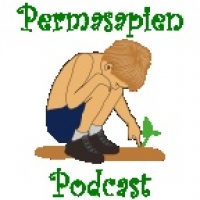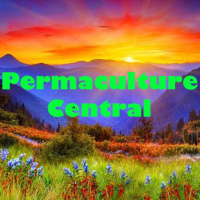Synopsis
with Scott Mann
Episodes
-
Dr. Dennis vanEnglesdorp - Bees
05/06/2022 Duration: 39minVisit Our Sponsor: Foraged.Market Donate to the Podcast via PayPal -or- Venmo @permaculturepodcast Join Our Community of Patrons on Patreon Want to listen to more conversations about Permaculture? Browse the extensive archives of the show. 40% of all insect species have declined globally in recent decades, and a third of those are considered endangered. The impacts that wild insects have on our lives are incalculable, while the benefit to humanity by domesticated honeybees is measured in the hundreds of billions of dollars. With this decline in insect populations, including the bees that pollinate our food, what can we do? Searching for answers and to understand what was leading to a bee decline, several years ago I reached out to Dr. Dennis vanEngelsdorp, a research scientist and associate professor of entomology at the University of Maryland and the former Chief apiarist for Pennsylvania to find out more. Resources: Dennis vanEnglesdrop, PhD Dennis vanEnglesdorp: A Plea for Bees (TED Talk Video)
-
Regenerative Media Alliance
30/04/2022 Duration: 48minVisit Our Sponsor: Foraged.Market Donate to the Podcast via PayPal -or- Venmo @permaculturepodcast Join Our Community of Patrons on Patreon Want to listen to more conversations about Permaculture? Browse the extensive archives of the show. In this episode, I sit down with my friends Jill Cloutier, of Sustainable World Radio, and Oliver Goshey, of Regenerative Skills, as we have a round-robin conversation about what brought us to the permaculture community and why we started and continue to produce our respective shows. This is an introduction not only to ourselves but also to a collaborative project we’ve been working on for more than a year, the Regenerative Media Alliance. Resources Regenerative Media Alliance Contact Regenerative Media Alliance Learn More
-
Together We Can - Recap and Resources
03/02/2022 Duration: 15minVisit Our Sponsor: Foraged.Market Donate to the Podcast via PayPal -or- Venmo @permaculturepodcast Join Our Community of Patrons on Patreon Want to listen to more conversations about Permaculture? Browse the extensive archives of the show. This episode shares some of what I learned at the Together We Can Conference from Future Harvest on January 13 and 14, 2022. This includes some reflections (or ramblings if you prefer) as they relate to my own experiences and practices, along with people, organizations, and ideas I recommend you connect with or learn more about to grow, improve, or pivot your permaculture practices. Resources Future Harvest Maryland Food System Resiliency Council Jonathan Bardzik , New Age Agrarianism Renard Turner - New Age Agrarianism (Interview) Booker T. Whatley (Wiki) Booker T Whatley Part 1: The Ten Commandments (Video) Booker T Whatley Part 2: The Clientele Membership Club (Video) Rodale Institute Save Three Lives: A Plan for Famine Prevention by Robert Rodale , Care
-
The Renegade Economist on Right Livelihoods
24/01/2022 Duration: 01h04minVisit Our Sponsor: Foraged.Market Donate to the Podcast via PayPal -or- Venmo @permaculturepodcast Join Our Community of Patrons on Patreon Want to listen to more conversations about Permaculture? Browse the extensive archives of the show. This episode is a guest interview from my friend Karryn Olson, continuing the conversation series on right livelihoods.
-
State of the Podcast Address
11/01/2022 Duration: 09minVisit Our Sponsor: Foraged.Market Donate to the Podcast via PayPal -or- Venmo @permaculturepodcast Join Our Community of Patrons on Patreon Want to listen to more conversations about Permaculture? Browse the extensive archives of the show. This episode is the annual update looking at the year ahead, including some announcements and insights from behind the scenes.
-
Renard Turner - Land-Based Culture and New Age Agrarianism
03/01/2022 Duration: 47minVisit Our Sponsor: Foraged.Market Donate to the Podcast via PayPal -or- Venmo @permaculturepodcast Join Our Community of Patrons on Patreon Want to listen to more conversations about Permaculture? Browse the extensive archives of the show. My guest today is Renard Turner, an independent, African-American, sustainable farmer. Along with his wife, he raises gourmet goats and squab at Vanguard Ranch Natural Gourmet in Virginia. He is also the opening keynote speaker at the upcoming conference, Together We Can, from Future Harvest. I wanted to learn more about Renard and how those experiences inform his upcoming keynote speech, New Age Agrarianism: Growing for a Regenerative, Sustainable, and Equitable Planet.
-
Final Thoughts - Permaculture, Land and Land Access. Episode 7
05/12/2021 Duration: 11minVisit Our Sponsor: Foraged.Market Donate to the Podcast via PayPal -or- Venmo @permaculturepodcast Join Our Community of Patrons on Patreon Want to listen to more conversations about Permaculture? Browse the extensive archives of the show. Here we are at Episode Seven, the finale, of the focused exploration of Permaculture, Land, and Land Access, with my final thoughts as a series of ramblings, reflections, and ruminations stemming from the earlier episodes. If you haven’t listened to all of those, or you just found the show and this is your first time tuning in, I recommend going back and checking the preceding six episodes before continuing. You’ll find numbered and ordered links to those in the show notes, along with past episodes of the show related to this series, and a long list of resources.
-
Improving Land Access - Permaculture, Land and Land Access. Episode 6
27/11/2021 Duration: 27minVisit Our Sponsor: Foraged.Market Donate to the Podcast via PayPal -or- Venmo @permaculturepodcast Join Our Community of Patrons on Patreon Want to listen to more conversations about Permaculture? Browse the extensive archives of the show. In this episode, we hear from each of the guests in the Permaculture, Land and Land Access series, as they address the question: What can we do to improve land access, particularly for those who want to grow food for people? We’ll hear from each of them in the order they appeared in the series so far, beginning with Jesse Frost, followed by Sarah Mock and Amyrose Foll, and ending with Reana Kovalcik.
-
Reana Kovalcik - Permaculture, Land, and Land Access. Episode 5.
22/11/2021 Duration: 22minVisit Our Sponsor: Foraged.Market Donate to the Podcast via PayPal -or- Venmo @permaculturepodcast Join Our Community of Patrons on Patreon Want to listen to more conversations about Permaculture? Browse the extensive archives of the show. In this episode, Reana Kovalcik and I discuss direct action and mutual aid to get seeds into the hands of people who want to grow food. Using that same overlay, to find and connect with local allies and organizations to spread the message and amplify our impact. Throughout, she uses her work with Slow Food and the program she started, Share a Seed, as effective, on-the-ground models to inspire and encourage you in your next steps for local change.
-
Amyrose Foll - Permaculture, Land, and Land Access. Episode 4.
18/11/2021 Duration: 28minVisit Our Sponsor: Foraged.Market Donate to the Podcast via PayPal -or- Venmo @permaculturepodcast Join Our Community of Patrons on Patreon Want to listen to more conversations about Permaculture? Browse the extensive archives of the show. Continuing the series on Permaculture, Land, and Land Access, in this interview I’m joined by Amyrose Foll, of Virginia Free Farm. Amyrose shares how she and the team at VFF use the farm as an incubator of ideas that empower individuals and organizations to get food and gardens into communities. She also discusses: How growing food is a liberating experience for everyone. Ways to find land to grow on. And, some organizations working with gardening and growing as therapy. Throughout you’ll hear her thoughts on what we can do to make a difference, right now, where we are.
-
Sarah Mock - Permaculture, Land, and Land Access. Episode 3.
16/11/2021 Duration: 28minVisit Our Sponsor: Foraged.Market Donate to the Podcast via PayPal -or- Venmo @permaculturepodcast Join Our Community of Patrons on Patreon Want to listen to more conversations about Permaculture? Browse the extensive archives of the show. In this interview, I’m joined by the author of Farm (and other F words), rural and agriculture writer, and researcher Sarah Mock. Sarah shares her discoveries about the sustaining myths versus realities of farms, farmers, farming, and agriculture profitability in the United States. She also takes us deep into systemic incentives for holding agricultural land as an investment and how this, and other policies, limit first-generation farmers from accessing or retaining land in order to grow food.
-
Jesse Frost - Permaculture, Land, and Land Access. Episode 2.
12/11/2021 Duration: 32minVisit Our Sponsor: Foraged.Market Donate to the Podcast via PayPal -or- Venmo @permaculturepodcast Join Our Community of Patrons on Patreon Want to listen to more conversations about Permaculture? Browse the extensive archives of the show. This conversation continues the series on Permaculture, Land, and Land Access as Jesse Frost joins me to share his experiences as a small-scale farmer. This includes: Where he sells. What he grows. Insights into market gardening, or French intensive, methods. How he's working towards reducing plastic around the farm. Whether or not you need to mechanize with a walk-behind tractor. And the use of living paths. We close by touching on his thoughts on farming on the small side in cities and how to reframe our mindset and the crops we choose to the resources and space available.
-
Permaculture, Land, and Land Access
08/11/2021 Duration: 11minVisit Our Sponsor: Foraged.Market Donate to the Podcast via PayPal -or- Venmo @permaculturepodcast Join Our Community of Patrons on Patreon Want to listen to more conversations about Permaculture? Browse the extensive archives of the show. This episode starts the series on Permaculture, Land, and Land Access. I wanted to explore this topic because I’m currently landless and the opportunity to buy land or purchase a house with enough space for a garden, shrinks each year as the price goes up and the size of plots goes down. Living in an apartment in a city, there are plenty of parks and green spaces, but accessing a community garden or place to grow can require a car, years on a waitlist, or both. When an affordable place comes, it may require relocating away from friends and family, or be hours from the viable markets needed to sell on-farm products, requiring regular long-distance commutes to town and the associated added expenses of transportation, fuel, maintenance, and time.
-
Lobelia Commons - Earthbound Farmer’s Almanac
05/11/2021 Duration: 13minVisit Our Sponsor: Foraged.Market Donate to the Podcast via PayPal -or- Venmo @permaculturepodcast Join Our Community of Patrons on Patreon Want to listen to more conversations about Permaculture? Browse the extensive archives of the show. If you’ve been listening to this podcast since near the beginning, you may remember shorter episodes that introduced an idea or topic. This episode, and others you’ll hear like it, irregularly in the future, is a call back to the days of those perma-bytes. With so many amazing people and organizations doing good work in the world, I want to be able to share more of them with you.
-
Vicki Hird - Rebugging the Planet
25/10/2021 Duration: 45minVisit Our Sponsor: Foraged.Market Donate to the Podcast via PayPal -or- Venmo @permaculturepodcast Join Our Community of Patrons on Patreon Want to listen to more conversations about Permaculture? Browse the extensive archives of the show. We know that pesticides have an outsized impact on insects in the environment, particularly when broad-spectrum chemicals are used, killing nearly all the invertebrates they touch. If you’ve read a warning label on these, or many of the other garden, yard, or farm sprays available, you’ll find cautions about keeping the contents of the container out of waterways or away from amphibians. But what about the other harms of human impacts? Like the destruction of habitat. The ever-increasing noise of industry. The lights that fill the sky with brightness throughout the night. And once we’re aware of this mess, what can we do to start repairing the damage?
-
Shantree Kacera - The Living Centre
18/10/2021 Duration: 52minVisit Our Sponsor: Foraged.Market Donate to the Podcast via PayPal -or- Venmo @permaculturepodcast Join Our Community of Patrons on Patreon Want to listen to more conversations about Permaculture? Browse the extensive archives of the show. We can expect change to occur continuously throughout our lives. We’re likely to call several places home. Friends will come and go. We’ll move between jobs multiple times and likely even switch career paths. As permaculture practitioners, in the landscape, we play with change. Slowing succession in some places of our design, advancing it in others, to arrest or encourage this process on a timeline that matches what we want within any given zone. But how do we change as people and plan the succession of an organization, and the land it inhabits, through time?
-
Gigi Berardi - FoodWISE
11/10/2021 Duration: 43minVisit Our Sponsor: Foraged.Market Donate to the Podcast via PayPal -or- Venmo @permaculturepodcast Join Our Community of Patrons on Patreon Want to listen to more conversations about Permaculture? Browse the extensive archives of the show. Food. Something we think about regularly. Whether that’s what we’re having for our next meal; trying to remember the contents of our cabinets or refrigerator; or what we need to buy on our next trip to the grocery store. As permaculture practitioners, these thoughts are also likely to include what we’ll be harvesting from our garden; searching for a local source from a producer we can meet face to face; or reading labels to find the indicators of where something comes from and how it was produced.
-
Wake Up, Grow Up, Clean Up, Show Up
27/09/2021 Duration: 41minVisit Our Sponsor: Foraged.Market Donate to the Podcast via PayPal -or- Venmo @permaculturepodcast Join Our Community of Patrons on Patreon Want to listen to more conversations about Permaculture? Browse the extensive archives of the show. Today’s interview is a casual and relaxed conversation, as I sit down with my co-host, David Bilbrey, and turn the mic towards him to discuss what brought him to permaculture and the ideas that influence how he sees the world. We touch on the work of Ken Wilber and Integral Theory, what community can mean in an internet-connected age, how podcasts make the world smaller as we hear from people we might not encounter otherwise, and the importance of sitting down to listen to a conversation between two people.
-
Carmen De Jesus - Consent and Our Livelihoods
20/09/2021 Duration: 01h01minVisit Our Sponsor: Foraged.Market Donate to the Podcast via PayPal -or- Venmo @permaculturepodcast Join Our Community of Patrons on Patreon Want to listen to more conversations about Permaculture? Browse the extensive archives of the show. Today’s episode is a collaboration with my friend, Karryn Olson. She’s currently hosting a series of conversations exploring what work could look, feel like, and give rise to, if our efforts were dedicated to collective thriving and evolution. During these times with Karryn and her guests, we’ll hear them explore visions of what the world could look like if we dedicated more of the hours of our day towards work in service to life. And what it could mean—to us, our communities, and the world—if we earned our living through this work. Join the Podcast Patreon Community Find the guest for this episode, Carmen Leilani DeJesus at museyouneedmost.me and on Instagram @consentisapractice. You can find our host for this episode, Karryn Olson, at Regenepreneurs.
-
Scott Gallant - Tropical Permaculture in Costa Rica
13/09/2021 Duration: 39minVisit Our Sponsor: Foraged.Market Donate to the Podcast via PayPal -or- Venmo @permaculturepodcast Join Our Community of Patrons on Patreon Want to listen to more conversations about Permaculture? Browse the extensive archives of the show. Our individual permaculture practices are rooted in the teachers we learn with. In the books we read to expand our knowledge. In the videos we watch on YouTube to answer a particular question. Or the documentaries we find on Netflix that give us a sense of connection to the larger world.
















